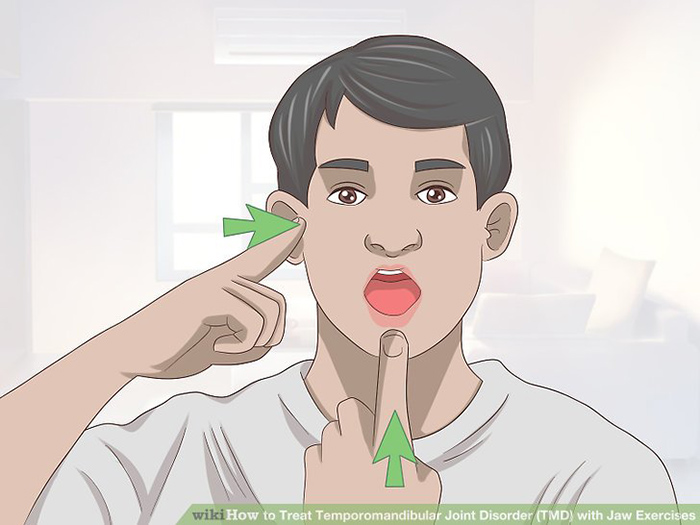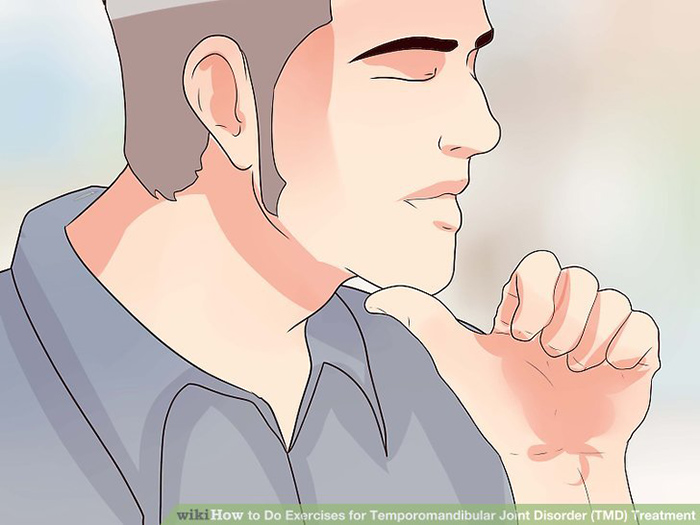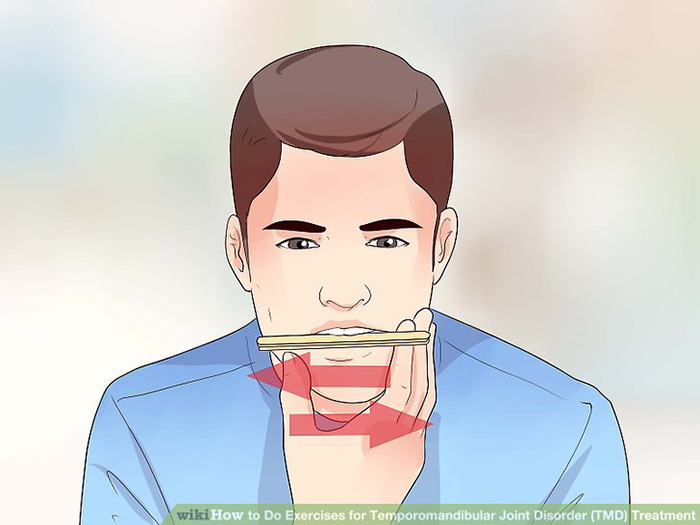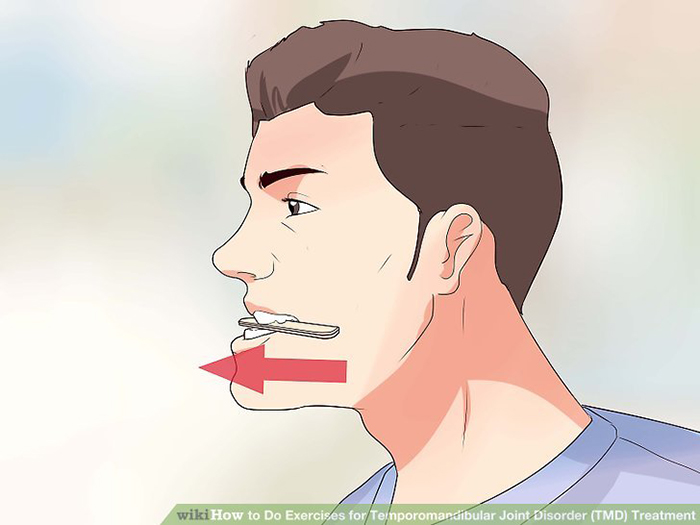Jaw Exercises For Bruxism
23rd Jan 2022

Dealing with bruxism and temporomandibular joint disorders can be painful. Unfortunately, sufferers have to worry about more than just possible dental damage from teeth grinding and jaw clenching. They also have to face sore jaws, tender facial muscles, headaches, earaches, jaw popping, and backaches. While pain medications may offer relief, they can come with worrisome side effects. Jaw exercises for bruxism offer a drug-free alternative. They're easy to learn, require no special equipment, and can help ease some of the pain from bruxism and TMJ disorders.

Jaw Exercises for Bruxism and TMJ Disorders
There are a number of different jaw and TMJ exercises that people can do to relieve tension, stretch, and strengthen the jaw. Temporomandibular disorders can often limit the jaw’s range of motion so stretching exercises can help to elongate those muscles. If you're curious, pick a few options to try. If your issues are severe, you may want to talk with your dentist first or speak with a physical therapist about creating a routine specifically for your needs. Some jaw exercises for bruxism an for relieving TMJ pain include:
Full Goldfish
Place one index finger on your TMJ joint (located on either side of your mouth, in front of your ears). Place the other index finger under your bottom lip. Press your tongue to the top of your mouth. Now, slowly drop your lower jaw completely open. Then, close your mouth. Complete this maneuver six times.
If you find putting a finger on your chin uncomfortable, try this alternative. Place your index fingers on the side of your jaw as you open and close your mouth.

Resisted Mouth Opening
Stand tall. Make a loose fist with your thumb extended. Place your thumb under your chin, pushing up gently. Then, slowly open your mouth. Your thumb should provide light resistance. Hold for three to five seconds. Close slowly. Repeat as desired to form a set.

Resisted Mouth Closing
With your mouth open, place your index fingers beneath your lower lip and your thumbs beneath your chin. Squeeze lightly to create pressure. Close your mouth. Repeat as desired to form a set.
Side-to-Side Jaw Movements
Find an item that's roughly 0.25 inches thick that you're comfortable putting in your mouth. Tongue depressors work well because you can stack them to the desired thickness. Put the item between your front teeth. Then, slowly shift your jaw from side to side. As the exercise grows easier, increase the thickness of the item that you're holding between your teeth.

Forward Jaw Movements
Find an item that's roughly 0.25 inches thick that you're comfortable putting in your mouth. Tongue depressors work well because you can stack them to the desired thickness. Put the item between your front teeth. Then, slowly shift your jaw to the front so that your bottom teeth are in front of your upper teeth, in an underbite position. Then, relax. Repeat as desired. As the exercise grows easier, increase the thickness of the item that you're holding between your teeth. Chin tucks can also be helpful to strengthen jaw muscles.

Awareness
Working to develop an awareness of where your tongue and jaws are can definitely help you reduce your clenching and grinding. Focus on the tip of your tongue. Place it at the back of your upper teeth on the roof of your mouth. When it's there, teeth grinding is impossible. If you can develop this habit, you will significantly decrease your teeth grinding.
Massage
Massage the jaw, jaw joint, cheeks, head, and neck. Massage and relaxation exercises can help to reduce physical muscle tension in the jaw, similar to any other overworked muscle in the body. Many people find it relaxing, so it can also serve as a stress reliever. Stress is one of the most common reasons people grind and clench, so reducing stress can also reduce bruxism. You may find relief with self-massage. However, Cleveland Clinic suggests a professional touch may be especially helpful if you go to a provider who has a comprehensive understanding of the musculature involved. Seeking out a massage therapist, chiropractor, physical therapist, or osteopathic physician who has experience treating people with bruxism or TMJ disorders may produce great results.
Related Articles:
How Jaw Exercise Ease Jaw Pain
As Colgate explains, jaw exercises give you a way to address both the causes and effects of bruxing. Bruxing can be caused by jaw tension. Unsurprisingly, people who grind their teeth and clench their jaws tend to develop tense jaw muscles. Jaw exercises offer a way to relieve some of that tension. In a similar fashion, stress is strongly associated with bruxism. Of course, being in pain can certainly cause stress. The jaw exercises for bruxism offer you a way to take control, which can help you relax and unwind, ultimately easing your jaw pain.
According to Healthline, jaw exercises may help decrease TMJ pain by strengthening the jaw muscles. In addition, they also stretch and relax the jaw, increasing mobility, and reducing jaw clicking and popping. This promotes healing and eases pain.
Other Treatment Options
Jaw exercises are a great tool for treating your bruxism, but they're far from your only choice. When teeth grinding is troublesome, experts generally recommend wearing a custom mouth guard for teeth grinding. Also known as a night guard or an oral splint, this dental device sits between the upper and lower teeth. When worn, it serves as a shield, preventing damage from grinding or clenching.
Botox presents another treatment option. When injected into the masseter muscles by a trained professional, it can reduce the grinding and clenching. The effects of botox will wear off over time, so treatment follow-up is necessary.
Pain medications are also available. Over-the-counter or anti-inflammatory meds like Ibuprofen are readily available, but you should take care to use them as directed. Your doctor may prescribe something stronger if they feel it's necessary. Or, they may offer you muscle relaxers if they believe it's appropriate.
Exercises for Bruxism and TMJ
When you brux, it's empowering to have tools and information that you can use to manage your condition effectively. The mentioned jaw exercises for bruxism are an excellent treatment option for temporomandibular joint dysfunction and bruxism because it addresses the stress that may be causing teeth grinding as well as the pain that results from the behavior. Is a night guard one of the items in your bruxism toolbox? If it is, be sure to check out the selection at Pro Teeth Guard. We offer custom-fit mouthguards online at affordable prices. Our night guards are made in a professional dental lab using professional materials and processes. They are effectively the same mouthguards that patients receive from their dentists.
References:
- Cleveland Clinic Writing Staff. (2021). Trigger point massage for TMJ pain. Cleveland Clinic. https://health.clevelandclinic.org/stubborn-tmj-pain-try-trigger-point-massage-and-jaw-exercises/
- Colgate Writing Staff. (n.d.). Bruxism exercises to reduce teeth grinding. Colgate®: Toothpaste, Toothbrushes & Oral Care Resources. https://www.colgate.com/en-us/oral-health/bruxism/bruxism-exercises-to-reduce-teeth-grinding
- Hopkins Medicine Writing Staff. (n.d.). Bruxism. Johns Hopkins Medicine. https://www.hopkinsmedicine.org/health/conditions-and-diseases/bruxism
- McDermott, A. (2019, March 8). 9 best TMJ exercises for pain relief. Healthline. https://www.healthline.com/health/tmj-exercises#exercise
- Tsai, M.-H., Hsu, J.-F., & Huang, Y.-S. (2016, June 29). Sleep problems in children with attention deficit/hyperactivity disorder: Current status of knowledge and appropriate management - current psychiatry reports. SpringerLink. https://link.springer.com/article/10.1007/s11920-016-0711-4

- Most Popular
- Hard Outside, Soft Inside
- 2MM Thick
- Moderate / Heavy

- Most Durable
- Hard Materials
- 1.5MM Thick
- Heavy / Severe

- For Day Time Use
- Thin, Barely Visible
- 1MM Thick
- Light / Moderate

- For Clenching
- Flexible & Soft
- 1.5MM Thick
- Light / Moderate

